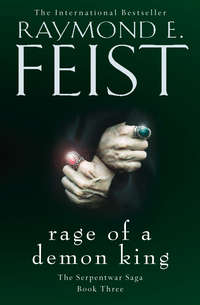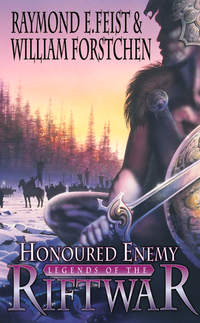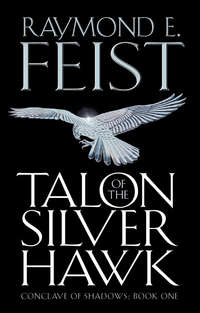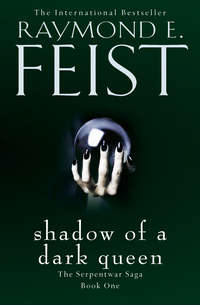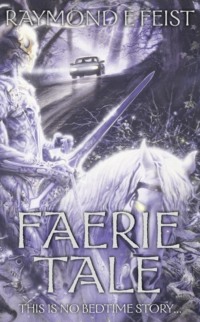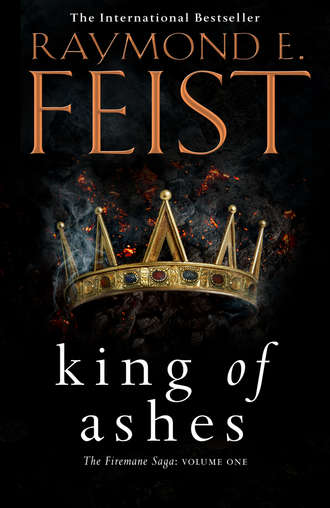
Полная версия
King of Ashes
Daylon wished he could be at home with his wife, dry and clean, fed and abed with her. The future security of his barony and his heirs had been his price, he bitterly conceded. The kings of Sandura and Zindaros had agreed to ratify his chosen heir without question should he perish without blood issue on the field or in the future. He had agreed, forestalling any claim on the freehold barony of Marquensas; he owed his people the hope of peace. Even with Steveren alive, without that assurance, the other four kings would each push forth their own claimant, for Marquensas was the most powerful and wealthy freehold barony on Garn. Without a clear line of succession war and destruction would be his dying legacy. So he had betrayed a man he loved like a brother to spare his people future ravages. As the priests of the One God would say, Daylon had made his pact with the Dark One; he had sold his soul.
It proved to be a black irony: upon the morning of his departure, his wife had informed him that she was with child. Too committed to withdraw from this butchery, Daylon had been sick in his soul from that moment.
Last to step upon the platform were Lodavico of Sandura and Mazika of Zindaros, their tabards and armour noticeably free of gore and mud. ‘I see two kings are missing,’ muttered Rodrigo.
Daylon nodded and as the gathering crowd of soldiers was unusually quiet for a public display such as this, he whispered, ‘Bucohan and Hector both claim fatigue and minor wounds keep them abed. They may be complicit in this, but they’re content to stay in their tents and let Lodavico and Mazika take all the credit for this charade. And it is in Lodavico’s nature to claim as much credit as possible; he confuses it with glory.’
‘No charade,’ whispered Rodrigo, ‘when the blood is real.’
As Daylon expected, it was Lodavico who stepped forward to speak. The king of Sandura was easily the most loathed noble in the five kingdoms, for his rule was harsh and arbitrary. He despised anything that he saw as being a threat to his dignity, not realising that he had none by nature or act. Daylon had called him a doleful monarch of a melancholy nature after their first meeting more than twenty years ago and nothing he had seen of the man since had altered that opinion. His red-trimmed black garb did little to lessen that perception, as well.
‘We are here to restore order, to deliver an oath breaker to his fate, and to end a threat to the sovereignty of our brother kingdoms.’ For a man who hated theatres, thought Daylon, Lodavico had a penchant for theatrics. His posturing and accent were overly broad, to the point of self-mockery, though the king of Sandura could never see it, and no one would dare apprise him of the fact. So men stood by and endured the histrionics, only to deride him privately later over drinks. At this moment, however, Daylon found little humour in Lodavico’s bad acting.
Since the plot to kill Steveren had been hatched, rumours that the king of Ithrace coveted the crowns of other nations had spread. There was no foundation for it; the most trivial of acts were characterized as evidence of his ambitions, and men anxious to plunder the riches of great kingdom needed little excuse for feigned belief and mock outrage. The sack of Ithrace could provide a noble or fighter with more wealth than a lifetime of skirmishes on the borders of the Wild Lands, the Burning Lands, or the Mountain Barriers.
A rebellion by malcontents within the Covenant lands had been staged. Another charade with real blood, thought Daylon. Word was then passed to Steveren that Lodavico was behind the incursion: the only truth in the string of lies. Steveren had answered duty’s call, as Lodavico and his allies knew he would, leading the core of his army into as vicious a betrayal as could be imagined. Nothing in Garn’s recorded history matched the scale of this treachery.
‘The poison tree bears poison fruit,’ continued Lodavico, pointing at the children. His face contorted in a mask of theatrical rage, eyes wide, brows arched, his head tilted as if listening for menace: the behaviour expected of a madman trying to convince his audience that such innocents were a threat to their existence. ‘All of this line must perish,’ finished Lodavico, slamming his right fist into his left palm for emphasis. A soldier stepped up behind the smallest child on the platform. Daylon tried to remember the boy’s name and failed before the soldier grabbed a handful of the child’s fire-red hair and yanked back his small head. A quick slice of a sharp dagger and the boy’s eyes rolled back up into his skull as blood gushed from his neck.
A weak cheer rose from the soldiers, and Daylon knew they just wanted this grisly spectacle to be over so they could rest, eat, then set about organizing for the march south to Ithra. He had no doubt several free companies had already departed, eager to be first to choose spoils; mercenary companies were free of political considerations and would race to be first to claim spoils. If there was any justice, Steveren had left behind a big enough garrison to inflict real pain on those adventurers. Let the early companies pay the price for their greed, and perhaps give some of the populace the opportunity to flee before the bulk of Lodavico’s forces descended on them. The only nations with fleets big enough to blockade a sea escape were Meteros and Zindaros. Zindaros’s navy had transported their army here, and Helosea had chosen to stay aloof from today’s butchery. Their navy was big enough that they could ignore Lodavico’s demands. The day might come when they’d regret their choice, but Daylon welcomed their decision. If some of Ithra’s citizens could find boats and reach the open sea, perhaps one day they might rebuild their nation …
Daylon shook off a rush of guilt and shame, to face the last blood that would he spilled today. What was done was done, and regret served no good purpose.
With swift precision, the executioner moved down the line, pulling back the heads of the children and then the women. Rodrigo asked, ‘Who’s missing?’
‘The two eldest sons,’ said Daylon. ‘Both fell in battle.’
Steveren Langene, the last king of Ithrace, watched in silent rage and torment as his family was slaughtered before his eyes. Daylon almost physically winced at the sight of a man he loved like a brother losing his ability to stand unaided. Two soldiers gripped the ends of Steveren’s restraining yoke, holding him upright on his knees as he began to collapse. The last to die was his wife of over thirty years, his queen, and the mother of his children. She fought when her hair was grabbed, not to avoid death but so that she could see her husband’s face as her life fled.
‘There’s no glory here,’ muttered Rodrigo.
‘Our four remaining kings wish to ensure there is no doubt that the line of the Firemanes is done.’
As soldiers dragged the dead off the platform, Lodavico felt the need to reiterate all the fabricated sins of the Firemanes, embellishing the lies with innuendo that even more perfidy and treachery might yet be uncovered. ‘Will this ever end?’ whispered Rodrigo.
Finally, they came to the king. Lodavico finished his speech and stepped aside as a soldier moved forward, a large two-hand sword in his grip. As others held Steveren’s yoke firmly, lowering it until he was on his knees, the soldier measured the distance from the wooden collar to the base of the king’s skull, then with a single circular swing he brought round the blade and cleanly sliced head from shoulders.
The crowd cheered, again with no real conviction. As if disappointed by the lack of enthusiasm, Lodavico motioned for the headsman to pick up the dead king’s head by its flame-red hair and then he shouted, ‘Behold the fate of a betrayer!’
Again came a weak response.
Lodavico looked at the hundreds of soldiers before him, as if trying to memorize their faces for a future accounting. His forehead creased as he scowled, his lower jaw protruding as if ready to challenge the entire army to a fight. The awkward moment was broken when Mazika Koralos, king of Zindaros, shouted, ‘Finish tending the dead and wounded, eat, and rest, for at dawn we march to Ithra!’ This brought a more enthusiastic cheer and the men began to leave.
Daylon turned away and saw an unspoken question in Rodrigo’s expression. Softly, almost through clenched teeth, Daylon said, ‘A king executing a king? On the field of battle is one thing, but this murder?’ He locked eyes with Rodrigo. ‘It is not done.’
‘You killed Genddor of Balgannon, after you took his castle.’ There was a hint of challenge in that statement.
‘He was no king,’ answered Daylon. ‘He was a usurper and pretender. And I killed him as he stood at bay in his great hall. Besides, Balgannon was no kingdom.’
‘No more,’ agreed Rodrigo, ‘since Ilcomen annexed it.’ He sighed. ‘It was hardly a real barony. Genddor’s father was nothing but a puffed-up warlord. You should have kept it for yourself.’ He looked around and saw the men moving away from the platform, so he nodded to Daylon that they too should depart.
Walking down the hillside, Daylon said, ‘Now comes the reward.’
Rodrigo said, ‘So, the riches of Ithrace are ours for the taking?’
Daylon put his hand on his old friend’s shoulder for a moment. ‘You can have my share, I will march my men home. I am tired of this.’
Daylon had been one of the few free barons who were truly independent and unallied. The rulers of Marquensas and Copper Hills had sworn to no king, but most of the remaining thirty barons had social or monetary obligations that effectively bound them to one of the great monarchs, at least until debts were repaid or obligations discharged.
‘Your oathmen won’t object?’ asked Rodrigo.
‘My oathmen are free to travel with Their Majesties,’ Daylon replied dryly. ‘I have no plans to campaign again soon, so should they wish to wager blood against gold, so be it. My castellans will come with me without complaint. I provide for them well enough.’
‘You may feel free to choose, my friend,’ said Rodrigo, ‘but from Lodavico’s mood, your departure may be seen as insult. He might not care that mercenaries and other lowborn left without his leave … you are hardly anonymous.’
‘He’s going to be too busy fighting over Ithrace to notice I’m not there.’ He shrugged as if it was of no concern. ‘And if he does notice, he will not dare make an open issue of it, lest he offend the other free barons.’
Rodrigo forced a smile. ‘You are so well loved, then, my friend?’
Daylon returned his faint smile. ‘No, but should my freehold and lands be taken by Lodavico, what is your first thought, Rodrigo?’
‘Who’s next?’ he conceded. Rodrigo paused, stopping where he would leave Daylon to make his way back to his own encampment. ‘You’ve thought this through.’
‘I have. All that I have done I did to ensure my family and people’s survival. Lodavico is covetous, and more than a little mad, but he’s not stupid.’ Daylon gestured towards the carnage around them. ‘A stupid man cannot scheme to end a rival kingdom in a single day. Lodavico planned this for a long time and in great detail, and he paid no small sum of gold to make it happen.
‘So, would he turn on me out of spite?’ Daylon shrugged and let out a small sigh of fatigue. ‘He knows that every free baron, and their oathmen, would think as we do; and while alone none of us are a threat, united we could end his rule.’
Rodrigo nodded in agreement. ‘More than a few of Lodavico’s oathmen would seize the opportunity to change their allegiance if all the free barons rose at once: he does not treat them gently. Release from his yoke would be worth the risk.’
‘The day will almost certainly come, my friend, when Lodavico has earned enough ire to force an alliance of enemies, but that day is still years away. Too many rivalries have been exploited, too much distrust seeded among those who need to unite against Sandura, and too many willing to support him out of fear, or hope of benefit.’
Daylon took a deep breath and let it out slowly, then with a wry smile he said, ‘Yes, that day will come, but not today.’
Rodrigo was thoughtful for a moment, and then dismissed the notion with a wave of his hand. ‘Well, return home to that young wife of yours. If I don’t go on to Ithra, I’ll have rebellion to deal with: my castellans haven’t been paid for a while and I need my share of the booty to cover wages and leave us a little besides.’
‘Scavenge well, my friend,’ said Daylon with a faint smile. The friends gripped each other by the right hand and touched chests. ‘But a word of warning,’ Daylon spoke quietly in Rodrigo’s ear. ‘A wise man prepares for the next war after his last battle, not when it is already sweeping across his land.’ He locked gazes with his friend. ‘As I said, that war is coming, not soon, but eventually. The balance of power has shifted.’ He waved back towards the hill where Lodavico had stood minutes before. ‘Sandura has the advantage for the moment, but with things now as they are, another may choose to seize it. One day someone will seek to become the new fifth king. Be ready for that day.’
‘Do I hear ambition?’
‘I seek no enlargement of my own holdings, but I’d topple another ruler rather than lose what’s mine. You need to think on this, old friend. Prepare not for the little wars, which will plague us soon, but for another such as this’ – Daylon nodded towards the bloody field – ‘where crowns are the prize.’ He leaned even closer. ‘Perhaps it will take five years, or ten, or longer, but certainly there will be that war. Lodavico is mad to be the high king.’ He lightly poked his finger against Rodrigo’s chest. ‘In your heart you know his ambition as well as I do.’ Glancing around to ensure they were unheard, he continued. ‘But Lodavico will eventually overplay his hand, and that’s when we need to be prepared.’
Rodrigo shook his head. ‘Bleak advice.’ Then he sighed and said, ‘But well considered.’ With a wave he walked away, and then paused as if a thought had struck him. He turned back to look at Daylon. ‘Wasn’t there a new baby?’
‘I don’t take your meaning.’ Daylon’s brow furrowed.
Rodrigo looked into Daylon’s eyes for a long moment. ‘I thought I’d heard word that the Firemane queen had delivered a late autumn child.’
‘The queen had a child late, yes …’ said Daylon. He let out a long sigh. ‘Most likely it died during the taking of the villa. They threw babies from the cliffs to the rocks when the household was slaughtered. Perhaps he was one.’
Rodrigo shrugged. ‘Perhaps.’ He turned away again and left without further word.
Daylon lingered. ‘A baby,’ he muttered, amused for the first time in days. Tales of a surviving Firemane baby would prevent Lodavico from sleeping well for the rest of his days, even if the whispers were false. He briefly considered tossing coin to a rumour-monger to fuel such gossip. Nothing else in this evil business was worthy of mirth. He looked skywards, attempting to ignore the circling flocks of carrion eaters and enjoy what he could of the lowering sun and blue sky on the western horizon. ‘Well, at least the world didn’t end,’ he muttered to himself.
Of all of the nobles present, Daylon was among the very few who could be considered scholarly. He had studied the legends surrounding the oldest houses and knew of one myth in particular that predicted that a rampant chaos would be unleashed upon the world should the Firemane line end. Having witnessed no thundering hordes of demons racing towards the battlefield, Daylon moved towards his pavilion wondering if Steveren had indeed been the last of his line …
He passed by huge mounds of dead bodies awaiting burial. Exhausted soldiers laboured over the digging of mass graves, while priests of the One God said their prayers over the corpses. Daylon resisted an urge to curse in the name of the old gods; he had no desire to be denounced and burned at the stake.
Lost in thought, he barely realised he had reached his pavilion when he noticed two men standing quietly before the tent flap. Reinhardt, captain of Daylon’s household guard, wore the tabard of House Dumarch: a tough veteran, he had earned his position through years of loyal service.
The man next to him was also familiar to Daylon. He was a broad-shouldered, thick-bodied man, strong and keen-eyed, but one who had also started to show faint signs of ageing. His dark eyes were underlined with shadow and they possessed wrinkles at the edges that were evidence of a hard life. His brown hair was turning steel grey and was receding. His walk betrayed a stiffness in one hip, most likely the result of a wound taken in a fight years before. Covered in grime, soot, and dried blood, the man bowed slightly, barely more than a nod, but enough to satisfy Daylon’s need for deference.
‘Edvalt,’ said Daylon in greeting.
‘It is the day, my lord,’ said Edvalt.
Daylon released a tired sigh and said, ‘Must we do this now?’
‘It is the day, my lord,’ Edvalt repeated with emphasis.
‘Ten years? Has it really been ten years?’
‘At the noonday sun, ten years exactly,’ said Edvalt.
‘It’s midway to sundown; you tarried?’
Edvalt found nothing humorous in the remark. ‘I was busy staying alive at noon, my lord. King Steveren mounted a counter-attack on your rear: they overran the luggage and my smithy.’ He looked the ruler of Marquensas in the eye and asked, ‘Your pledge, my lord?’
Daylon bristled at the implication that he might not honour his pledge but reined in his urge to strike the man. He was angry and fatigued, and he also knew part of his frustration was caused by losing Edvalt’s services.
Captured in a border dispute, Edvalt had been spared the slave collar only because Daylon had noticed the quality of his enemy’s weapons. He had quickly identified Edvalt as the weapon-smith and offered him a choice: enslavement for life, or ten years of skilful service in exchange for his freedom. Daylon had gambled that the smith needed the promise of freedom to do his best work for his new master.
Daylon let out a long, measured breath and took control of his temper. ‘Yes, I remember.’
‘Ten years of faithful service in exchange for my freedom,’ said Edvalt, his tone even, his expression revealing a resolution Daylon knew all too well.
Daylon put his hand on Edvalt’s shoulder. ‘I know,’ he said with a tone of resignation. ‘It’s a bargain I regret,’ said the Baron of Marquensas. ‘Had I fully understood your gifts, I would have offered you your freedom that day in exchange for a pledge never to leave my service.’
‘Hardly freedom,’ said Edvalt.
Daylon was frustrated. He had hated every moment of this journey, and losing Edvalt to a promise made after another bloody confrontation was almost more than he could bear. ‘I need you, Edvalt, as certain as the rising sun at dawn. There’s more war coming, for Lodavico has turned the world upside down, and you are the finest smith I have ever known. And more, you’re a good man. Stay and I’ll make you wealthy.’
Edvalt paused for a moment, as if taken slightly off guard by Daylon’s request. He looked out over the field of carnage around them and said, ‘I thank you for the compliment, my lord, but my most fervent wish is that I never have to behold a sight such as this again.’ He looked Baron Dumarch in the eye and said, ‘It is time.’
Fatigue, frustration, and anger threatened to boil inside Daylon. He could simply ignore his pledge and keep Edvalt in service, but he knew that to do so would be to lose his skill forever. He waited a long moment, then finally let his better nature take control.
‘As of this moment, you’re a free man, Edvalt Tasman.’ He turned to Reinhardt. ‘Find a scribe and have him write a free passage for Edvalt—’
‘And for Mila,’ interrupted the smith.
‘Who?’ asked Daylon.
‘My woman, Mila.’
Daylon assumed he referred to one of the many camp followers, or a local girl from the city, but saw an opportunity. ‘Have you wed her without leave?’
Edvalt stiffened. As a bound man he should have sought permission to marry. He hesitated, then said, ‘Not before a priest. We pledged to each other. We have a daughter.’
‘Your woman is of no concern to me,’ said Daylon, ‘but your daughter is, by law, my property. She was born in bondage.’
The slight shift in Edvalt’s posture and expression were signs that both Daylon and Reinhardt recognised instantly. They showed that the smith was ready to fight with his bare hands against sword if need be.
Daylon mustered all the wisdom he had left and waved away Edvalt’s rising anger. He let out a long sigh and said, ‘I’ll not take your child from you, Edvalt. But in exchange you must give me your pledge.’
Edvalt’s eyes narrowed as he said, ‘To what end, my lord?’
‘I’ll answer that question in a moment, but first, where will you go?’
Without a moment’s hesitation, Edvalt said, ‘The Narrows. I’ll find a village in need of a smith and begin my new life in the Covenant lands. I can forge ploughshares, carve coulters, shoe horses and mules. If I must, I will repair a blade or forge a new one …’ He shrugged. ‘But should I never make another weapon, I’ll be content.’
Daylon weighed his answer. The finest weapon-smith he had ever known would not, at least, seek service with a rival lord. The Narrows was free of armed conflict, for the time being, so Edvalt would find little demand for weapons there.
‘Very well,’ said the Baron of Marquensas, ‘then we have no issue, but for the pledge: if you find an apprentice who trains to be your equal, you will send him to me.’
‘I’ll not put another in bondage,’ answered Edvalt.
Annoyed by the answer, Daylon snapped, ‘I would not take a freeman into service against his will. You were a captive in war, and it was my right to put you to death or sell you as a slave. I did neither.’ Both men knew his largesse was solely due to Edvalt’s talent, and not any generosity of spirit on Daylon’s part. ‘I will ask him to serve freely, and reward him greatly if he agrees.’
But the weapon-smith seized the moment. ‘Should I find such a lad, I will send him to you first,’ agreed Edvalt. ‘If he willingly takes your service, that is his choice, but should he wish to make his own way in the world, that is also his right?’
Daylon nodded. ‘Agreed. Then we are done. Take your woman and child and travel safely.’ He nodded to Reinhardt. ‘See that they are given safe conduct.’ As an afterthought, he said, ‘Find him a serviceable wagon or cart, as well, so he might carry his tools with him, and give him half a weight of gold.’
The captain nodded and said, ‘As you command, my lord.’ He signalled to Edvalt to follow him.
Taken aback by Daylon’s unexpected generosity, Edvalt muttered, ‘I thank my lord,’ and the two men departed.
Daylon stood alone at the entrance of his pavilion watching the finest sword maker he had ever encountered walk away. He knew the day approached when he would need many fine weapons. He was just grateful it was not today. He turned and pulled aside the canvas flap.
Stepping inside his tent, Daylon found the clean clothing set out for him by his body man, Balven. He was constantly amused by the fact that the only person he truly trusted in this life was his bastard half-brother. Balven had come to their father’s castle as a boy, to be a companion for the young heir. When their father died, Daylon had kept Balven close at hand as his body servant, but in truth he was a more trusted adviser than any of Daylon’s official advisers.
Balven waited beside a wooden bucket of fresh water and a heavy towel. A proper bath would have to wait until he reached home, but he could at least remove the worst of the mess from his body.
As Balven began to strip off Daylon’s armour, the Baron of Marquensas wondered again about the Firemane baby. What if there was a child out there, destined to plague the sleep of the four remaining kings?
Balven was the younger brother by two years, but he had been with Daylon since the age of six and could read his moods well. Daylon’s mother had done all she could to put a wedge between the half-brothers, but all that she had succeeded in doing was bringing them closer. Daylon had possessed a rebellious nature as a child, and he dared not reveal it to their father, so his poor mother had borne the brunt of it. As a result, the two men were far closer than master and servant.


